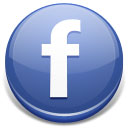Traditional Chinese Medicine
Traditional Chinese Medicine (TCM) is an ancient healing system developed from over five thousands years of observation, investigation, and clinical experience. TCM’s philosophy and techniques have changed very little over thousands of years due to its effectiveness as a healing art. Its modalities include acupuncture, acupressure, and herbal medicine.
Chinese medicine is based on the principle of balance. It emphasizes the importance of creating and maintaining balanced energy or Qi (pronounced "chee"), which flows in channels throughout the body.
Energy moves along pathways within our bodies called meridians. At various points these pathways come to the surface of the skin forming an acupuncture point. Stimulation of these acupuncture points helps our organs, cells and tissues by allowing energy to flow more evenly. Although known primarily for pain relief, acupuncture has an almost unlimited array of uses from digestive disorders to mental calming and infertility.
Yin and Yang
The ancient Chinese proposed that every living thing is sustained by a balance of two opposing forces of energy, called Yin and Yang. Together these two opposing energies make up the life essence, also known as Qi. Yin is the nourishing aspect of the body. Yang is the burning aspect of the body which gives off energy. Half of our body"s organs and meridians are governed by Yin and the other half by Yang. When Yin and Yang are out of balance in the body, this causes a blockage of Qi and subsequent illness. Yin and Yang imbalances can be caused by stress, pollution, toxicity, poor diet, emotional upsets or infection. For diagnostic purposes, Yin and Yang are further subdivided into interior and exterior, hot and cold, deficiency and excess conditions.
The Five Elements
Traditional Chinese medicine proposes that everything, including our bodies, is composed of five elements: fire, earth, metal, water and wood. Similarly herbs are also classified into five categories - sweet, salty, bitter, pungent and sour. Each herb corresponds with one of the five elements. For example, because skin is a metal element (Yang organ), it would be treated with a pungent herb. The Five Element Theory also looks at the environment, diet, lifestyle, family history and mental-emotional state as equally important factors in a person"s well being.
Similar to Naturopathic philosophy, TCM looks at the whole person. Therefore, although two people might both come into my office with the concern of headaches, each person would receive different treatments based on their own unique factors.
Learn more about the acupuncture services offered at Algoma Natural Healing Clinic.
For more information about acupuncture I encourage you to download my free eBook, "A Layperson"s Guide to Chinese Medicine" and to read the articles I have written about acupuncture.
Or return to the main natural therapies page.
Get To Know Us A Little Better
Keep up to date on what"s going on at the clinic. Receive news and health tips exclusive to subscribers. Sign-up for our free monthly newsletter today.
Connect With Us
Take A Step Towards Better Health
When you are ready to book an appointment, try our online booking option. It"s convenient, easy and fast. Of course, you also have the option of contacting the clinic by phone (705) 575-7560 or email.






